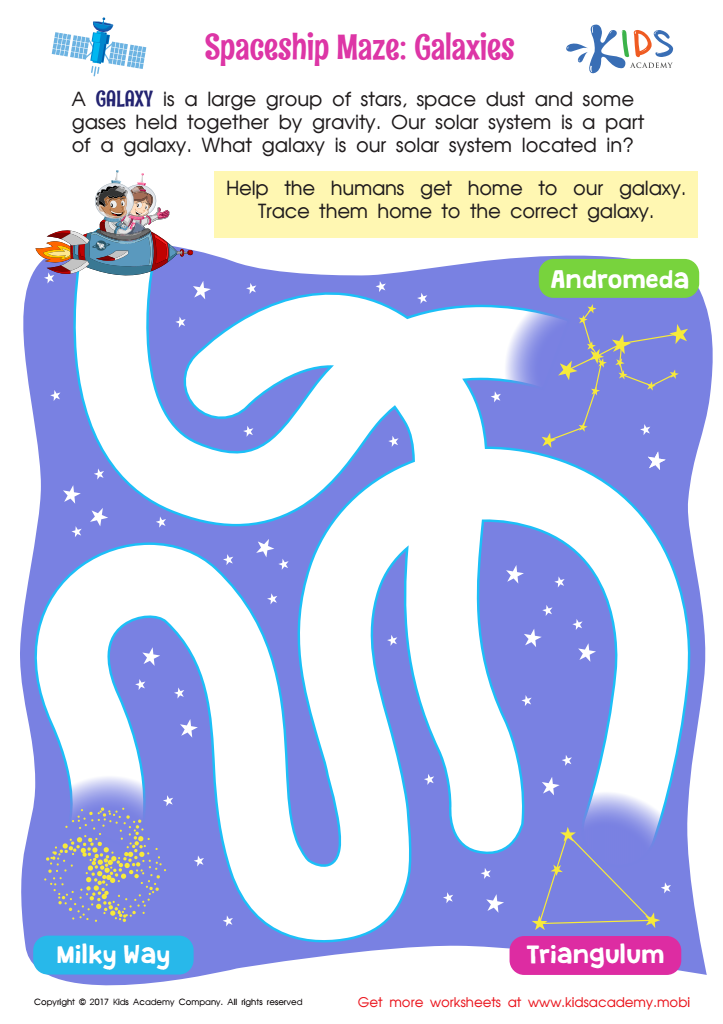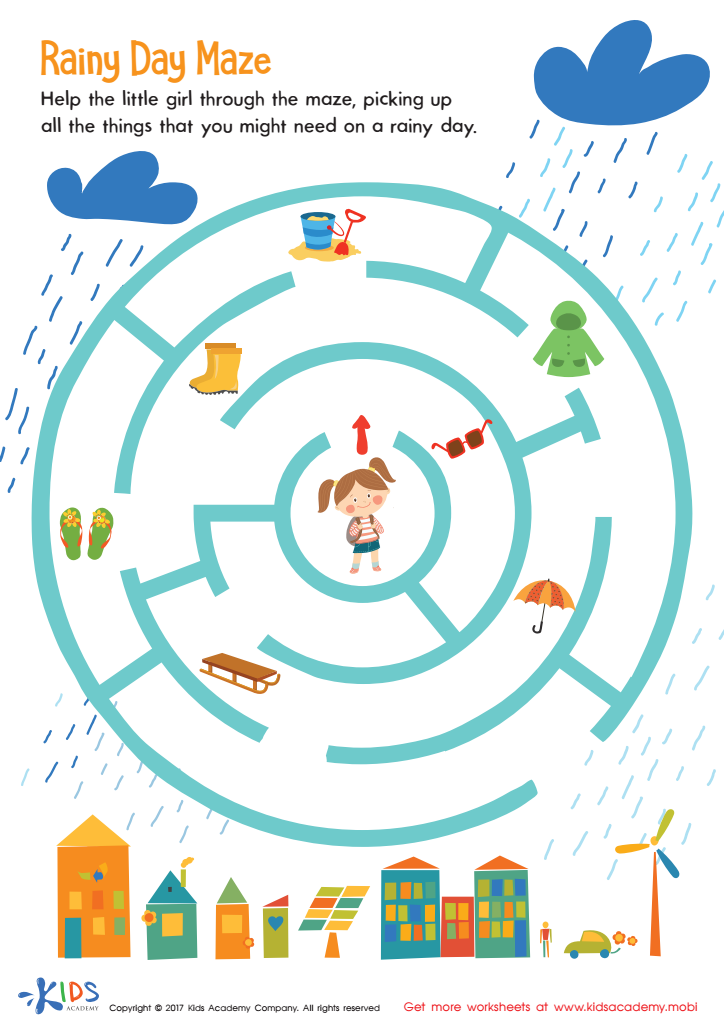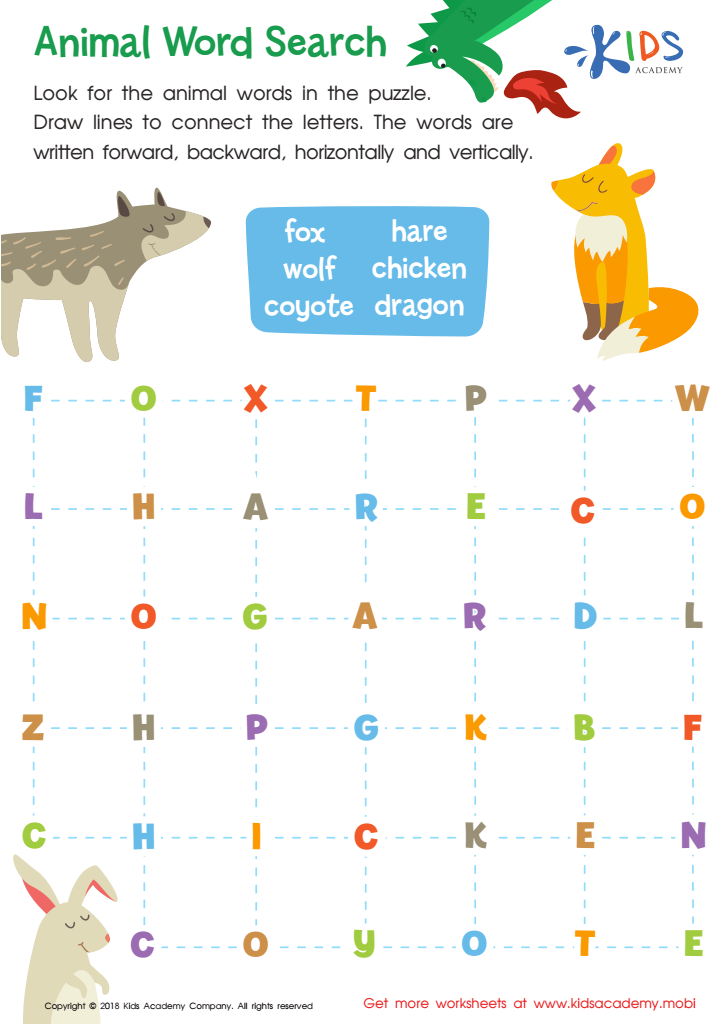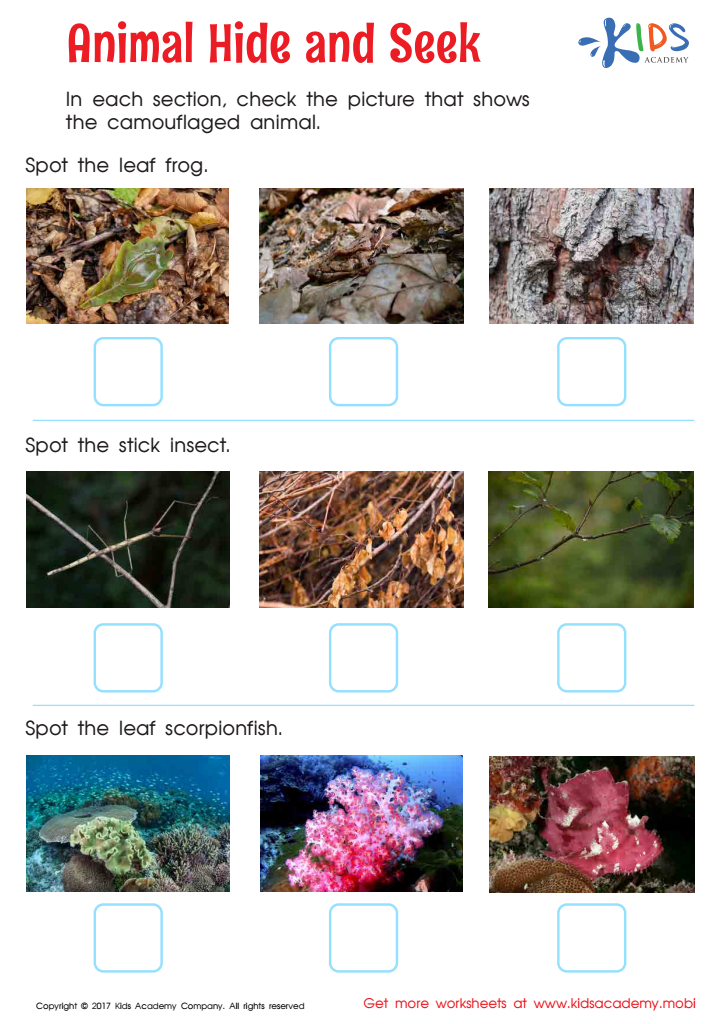Concentration improvement Science Worksheets for Ages 3-9
4 filtered results
-
From - To
Enhance your child's focus and concentration with our engaging Science Worksheets designed specifically for ages 3-9. Our collection offers a variety of fun, age-appropriate activities that make improving attention skills enjoyable. Each worksheet is thoughtfully crafted to stimulate curiosity and critical thinking, encouraging young learners to explore scientific concepts while honing their concentration. From interactive experiments to vibrant illustrations, our resources capture the imagination and promote an active learning environment. Perfect for use at home or in the classroom, these worksheets provide a valuable tool for parents and educators alike, fostering essential skills that support lifelong learning and development. Discover the joy of science today!


Spaceship Maze: Galaxies Worksheet


Rainy Day Maze Worksheet


Animal Word Search Worksheet


Animal Hide and Seek Worksheet
Concentration improvement science for ages 3-9 is crucial for parents and teachers because it lays the foundation for lifelong learning and cognitive development. During these formative years, children develop essential skills that support focusing attention, problem-solving, and critical thinking. Improved concentration enhances their ability to engage with educational content, follow instructions, and complete tasks, leading to academic success.
Understanding the principles of concentration aids parents and teachers in creating optimal learning environments. By implementing techniques such as minimizing distractions, incorporating short, engaging activities, and promoting mindfulness, adults can help children strengthen their attention spans. This is particularly important in today's fast-paced, technology-driven world, where distractions are prevalent.
Additionally, fostering concentration can positively impact behavioral issues often associated with attention deficits, reducing frustration and promoting a sense of accomplishment. It also cultivates emotional regulation, helping children manage their impulses and build resilience.
Furthermore, concentration skills translate to other aspects of life, encouraging better social interactions and improved self-control. As nurturing early learners, it is essential for educators and parents to prioritize concentration improvement, as the strategies employed during these critical years will influence children’s academic trajectories and overall well-being in the long run.

 Assign to My Students
Assign to My Students




















